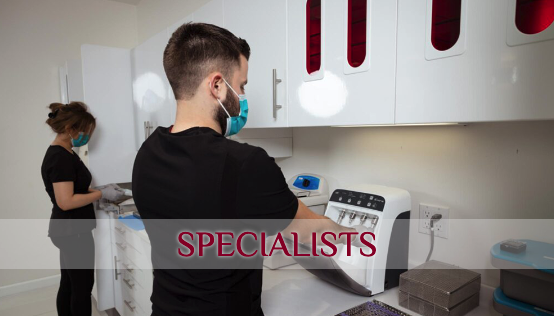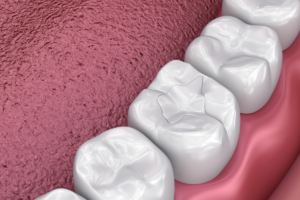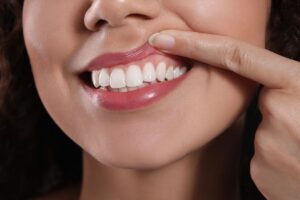If you’ve ever been plagued by the disruptive cycle of sleep apnea, you’re not alone. The relentless interruption of your rest, coupled with daytime drowsiness, can truly take a toll. The silver lining is that there exists a range of sleep apnea treatments designed to restore the tranquility of your nights. In this comprehensive guide, we’ll delve into the realm of sleep apnea, explore its symptoms, and uncover the diverse arsenal of remedies available – from the comfort of your own home to the realm of medical interventions. Let’s embark on this journey to rediscover the joys of peaceful slumber.
What Is Sleep Apnea?

Understanding the nemesis that is sleep apnea is the first step towards combating it effectively. Imagine a scenario where your breath takes intermittent breaks during your sleep – this is sleep apnea in action. Consequently, the following day often leaves you feeling lethargic, trapped in a cycle of exhaustion.
This disorder comes in three distinct forms:
- Obstructive Sleep Apnea (OSA): Here, the culprit is a physical blockage in your airway, leading to recurrent pauses in your breathing.
- Central Sleep Apnea (CSA): In CSA, the brain falters in sending the appropriate signals that regulate your breathing.
- Complex Sleep Apnea: A fusion of OSA and CSA, this type showcases the duality of sleep apnea’s impact.
Snoring: A Symptom Worth Heeding
Snoring may appear innocuous, but its significance can’t be understated. Often arising due to the relaxation of throat tissues during sleep, snoring might indicate deeper problems like OSA and Upper Airway Resistance Syndrome (UARS). Ignoring snoring can equate to neglecting the warning signs – it’s advisable to consult a medical professional when it makes its nocturnal debut.
Spotting Sleep Apnea Symptoms
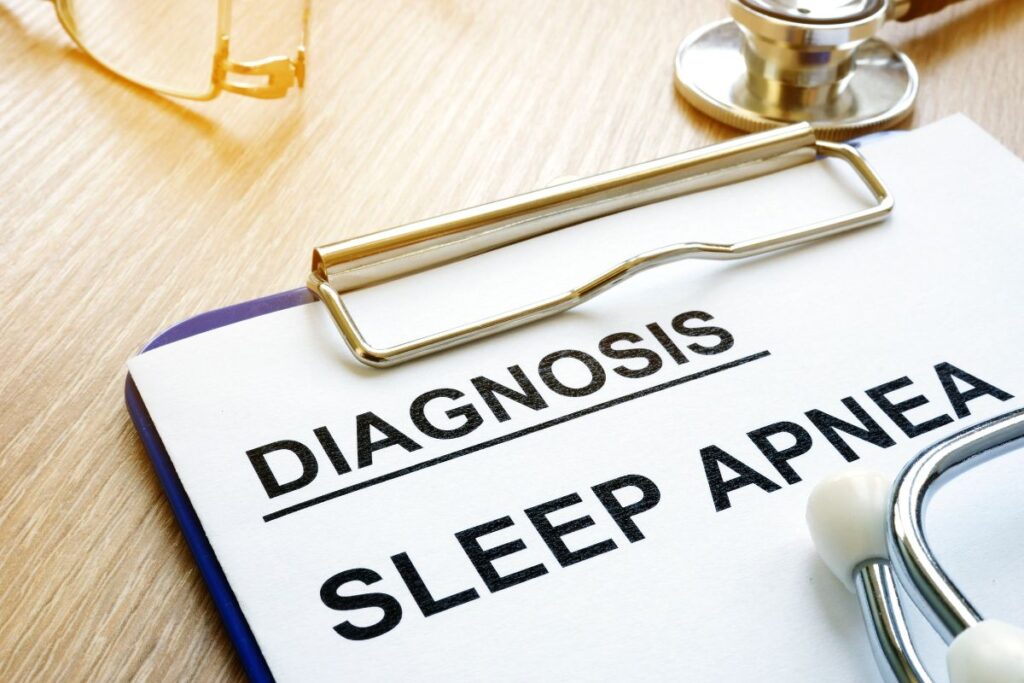
Recognizing the symptoms of sleep apnea is akin to unlocking the door to better sleep. Here’s a snapshot of some of the most telling signs:
- Loud Snoring: Your snores could be more than just nightly music.
- Insomnia: Sleep eluding you? Apnea might be the reason.
- Daytime Drowsiness: If mornings feel like a battle, apnea could be your opponent.
- Daytime Naps: Unexpected daytime naps might be your body’s way of compensating.
- Morning Headaches: Starting your day with a headache? It’s time to consider apnea.
Effective Home Remedies for Sleep Apnea
The comforting news is that lifestyle changes can yield profound improvements in sleep apnea. Your haven for rejuvenating slumber could be a few changes away. Here’s what you can do right at home:
1. Shed Pounds for Sound Sleep Excess weight can contribute to sleep apnea, as the surplus tissues in your throat obstruct your breathing. Shedding those extra pounds comes with a constellation of benefits, including the potential for better sleep.
2. Bid Adieu to Alcohol and Tobacco Alcohol’s tendency to relax throat muscles and tobacco’s knack for swelling airways don’t bode well for sound sleep. Kicking these habits could potentially boost muscle tone and reduce airway inflammation, serving as a simple yet effective remedy.
3. Embrace Your Side Surprisingly, your sleep position has a role to play. Opt for sleeping on your side to facilitate smoother breathing. If you’re prone to changing positions, placing pillows behind your back can help you maintain the posture conducive to unobstructed breathing.
Prioritizing Self-Care for Sleep Apnea
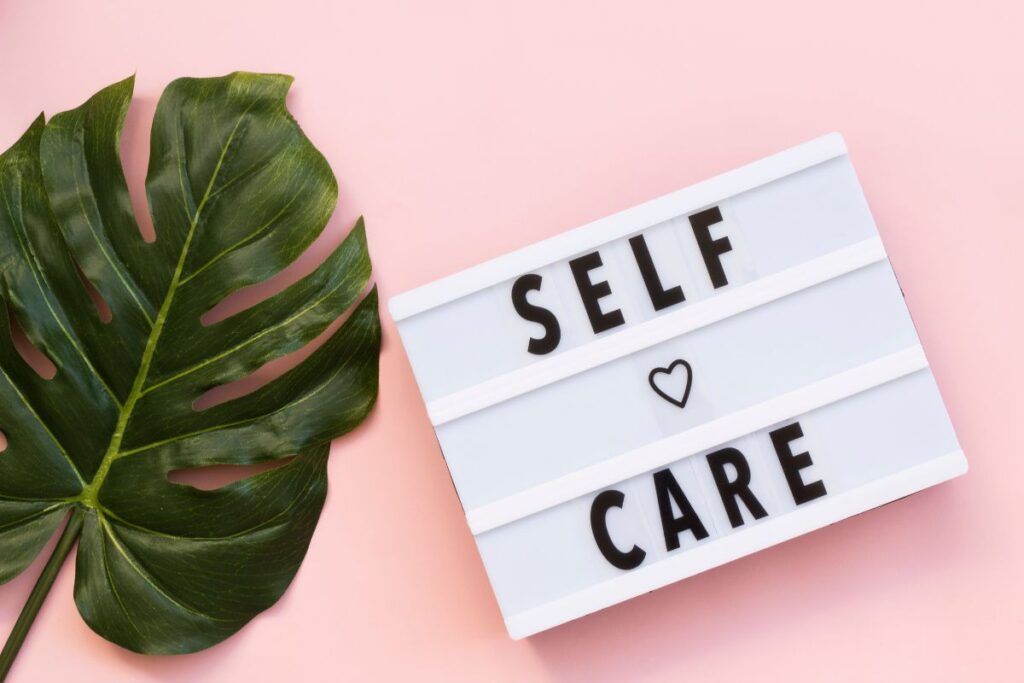
Your daily routines hold the key to alleviating sleep apnea. Consider integrating the following steps to nurture your well-being:
1. Mindful Exercises for Enhanced Breathing Empower your body and mind through exercises targeting the mouth and facial muscles. Engaging in yoga breathing exercises and meditation can work wonders for your respiratory system. Experiment with different techniques to uncover the one that resonates best with you.
2. Medication Evaluation Some medications might inadvertently exacerbate your sleep apnea symptoms. Ensure you maintain an open line of communication with your healthcare provider about your condition and any potential impacts certain medications might have.
Why Treat Sleep Apnea?
While home remedies and self-care steps have their place, there are instances where medical interventions are imperative. The advantages of medical treatments extend beyond what can be achieved through DIY methods. The merits include:
- Enhanced Daytime Vitality: Bid adieu to constant tiredness.
- Reduced Headaches: Start your day without the burden of morning headaches.
- Mitigated Accident Risk: Sharpened alertness decreases the chances of mishaps.
- Uplifted Mood: Quality sleep often translates to an improved overall mood.
- Lowered Health Risks: By addressing sleep apnea, you can potentially reduce the risks of heart disease and diabetes.
Exploring the Finest Sleep Apnea Treatments
Regardless of whether you’re grappling with Obstructive Sleep Apnea (OSA) or Central Sleep Apnea (CSA), a plethora of treatments beckon. Among these, surgery is an option, although it’s typically reserved for severe cases where non-surgical remedies prove insufficient. Here, we’ll focus on non-surgical solutions:
Treatments for Obstructive Sleep Apnea (OSA)
Three main avenues exist for managing OSA:
1. Continuous Positive Airway Pressure (CPAP) Imagine a mask linked to a machine that maintains a steady flow of air pressure to keep your airway open. CPAP can halt sleep apnea’s onslaught by virtue of its heightened air pressure. While effective, some individuals might find the mask cumbersome or heavy. If snoring persists with CPAP, alternate treatments may be explored.
2. Oral Appliances Offering a more comfortable alternative to CPAP, oral appliances come in various forms. Some reposition your lower jaw, while others widen your throat for unobstructed breathing. Your dentist can guide you through a range of oral appliances, tailoring the choice to your unique needs. Check out our sleep apnea page to learn more about oral appliances and treatments right away!
3. Surgical Interventions Surgery involves diverse methods like tissue reduction, jaw repositioning, nerve stimulation, and creating new airways. While tissue reduction’s efficacy pales in comparison to CPAP, other surgeries require further research to validate their effectiveness.
Central Sleep Apnea (CSA) Solutions
The realm of CSA treatments is equally varied:
1. Addressing Underlying Conditions Medical problems like heart disease or neuromuscular disorders can contribute to CSA. Treating these conditions can indirectly alleviate your sleep apnea. Medication adjustments might also be recommended to support your respiratory well-being.
2. Supplemental Oxygen Prescribed supplemental oxygen during sleep can come in diverse forms, each tailored to your comfort. Consulting your doctor will help you determine the most suitable choice.
3. Adaptive Servo-Ventilation (ASV) A modern marvel, ASV monitors your breathing pattern and modulates it to maintain a seamless flow. This treatment is particularly beneficial for severe CSA cases or advanced heart failure patients.
Embarking on Your Treatment Journey
Deciding the ideal sleep apnea treatment necessitates expert guidance. Dr. Maryam Horiyat at Aria Dental is poised to be your partner throughout this journey to rejuvenated sleep. Don’t hesitate to reach out for a consultation and set the wheels in motion for a revitalized, restful night’s slumber.
In conclusion, our pursuit of sleep apnea treatments unveils a spectrum of strategies, from empowering self-care to harnessing cutting-edge medical interventions. Armed with knowledge, you’re poised to embark on your path to tranquility and improved well-being.

FAQ
Most Frequently Asked Questions
You can improve your sleep apnea by losing weight, changing your sleeping position, and quitting alcohol and smoking.
Loud snoring, gasping for air, or stopping breathing during sleep are some of the more obvious signs of sleep apnea.
There is no cure for sleep apnea, but a continuous positive airway pressure (CPAP) machine is the most common treatment method.
You can lose weight, use oral appliances or undergo oral surgery but all that is going to depend on your doctor’s diagnosis.
Generally speaking, you can live a much longer and happier life if you treat the sleep apnea.
Sedatives, painkillers, and anesthetic drugs can worsen your sleep apnea worse.








